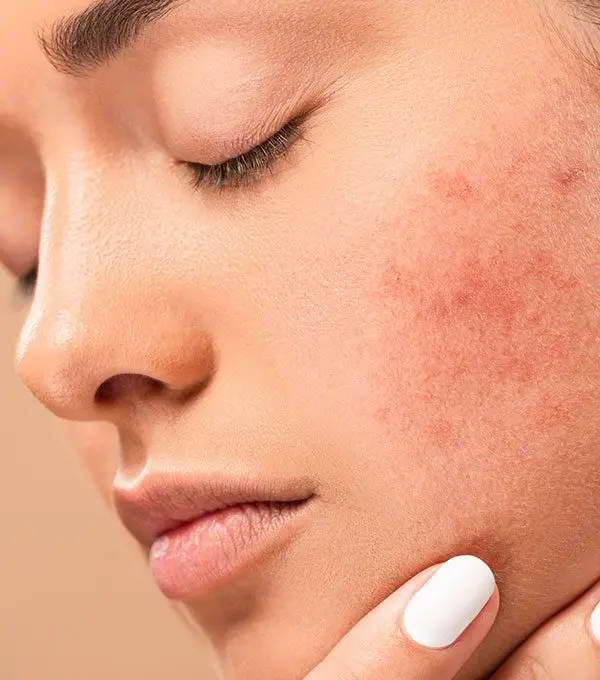This is important information about your treatment with Roaccutane (isotretinoin) in relation to minimising the risks of possible birth defects with this medicine. You will need to read this carefully before you start taking Roaccutane (isotretinoin).
This describes some of the important facts about Roaccutane (isotretinoin) that you need to be aware of, however, it does not replace the advice given to you by a healthcare professional such as your dermatologist or pharmacist. Further very important information about Roaccutane (isotretinoin) including how to take it, special warnings and side effects are included in the patient information leaflet which is supplied in each package of Roaccutane (isotretinoin). Please remember to read the package leaflet very carefully.
If you have any further questions or concerns about taking Roaccutane (isotretinoin) after you had read this, you should talk to your dermatologist or doctor.
ROACCUTANE (ISOTRETINOIN) AND BIRTH DEFECTS
No medicine is completely free from adverse effects. One of the most serious side effects you risk with Roaccutane (isotretinoin) is severe and serious birth defects if you become pregnant. Your Roaccutane (isotretinoin) capsules would also put a female friend or relative in danger of a deformed baby if you shared them. Treatment with Roaccutane (isotretinoin) during pregnancy is not allowed under any circumstances. If an unborn child is exposed to Roaccutane (isotretinoin) this can result in severe and serious defects (malformations) in the child.
Important Information for FEMALE Clients
- You must not take Roaccutane (isotretinoin) if you are pregnant.
- You must not become pregnant while taking Roaccutane (isotretinoin), or for 1 month after you stop taking Roaccutane (isotretinoin).
- Severe birth defects have occurred in babies of women taking Roaccutane (isotretinoin) in any amount – even for short periods – during pregnancy. There is an extremely high risk that your baby will be born deformed if you are pregnant or become pregnant while taking Roaccutane (isotretinoin). There is also an increased risk of losing the baby before it is born (miscarriage).
- Your doctor will ask you to read and sign a form to show that you understand some of the serious risks associated with Roaccutane (isotretinoin).
- You will not get your first prescription for Roaccutane (isotretinoin) until you have had a least one negative medically supervised pregnancy test or if you are not at risk of becoming pregnant.
- If you are at risk of becoming pregnant you will have a pregnancy assessment every month during your Roaccutane (isotretinoin) therapy, and a final pregnancy test needs to be done 5 weeks after you Roaccutane (isotretinoin) treatment has finished. You can only get a prescription each month by returning to your specialist or doctor to have a pregnancy assessment.
- You will need to discuss effective contraception with a doctor or nurse. If you are at risk of becoming pregnant you must use at least one, and preferably two, effective forms of contraception at the same time for at least one month before beginning treatment, during treatment, and for one month after Roaccutane (isotretinoin) treatment has stopped. Any contraceptive method can fail, including oral contraceptives (the pill) and injectable/implantable contraceptive devices – therefore it is strongly recommended that you use two forms of contraception at the same time, and that one of the two methods is a barrier method such as a male condom.
- Stop taking Roaccutane (isotretinoin) and contact your doctor immediately, if you have unprotected sex, miss your period or become pregnant while you are taking Roaccutane (isotretinoin) of in the month after you have stopped Roaccutane (isotretinoin) treatment.
- Treatment with Roaccutane (isotretinoin) does not affect your fertility. One month after you have stopped treatment, Roaccutane (isotretinoin) will not longer be present in your body, and will have no effect on your ability to have healthy children in the future.
- Talk to your doctor if you plan to take other medicines or herbal products. This is especially important for women using contraceptive pills and other types of hormonal contraceptives. Certain medicines and herbal supplements such as St John’s wort may make contraceptives less effective. You should therefore avoid taking St John’s wort during treatment with Roaccutane (isotretinoin).
- Do not breast feed during Roaccutane (isotretinoin) treatment or for one month after you have stopped taking Roaccutane (isotretinoin). It is likely that Roaccutane (isotretinoin) can pass into breast milk and may harm the baby.
- It is important that you do not share this medicine with anyone else, particularly other females, even if they have the same condition as you.
- Do not give blood during Roaccutane (isotretinoin) treatment or for one month after you have stopped. If someone who is pregnant receives your donated blod, her baby may be born with serious birth defects.
- If you have any left-over Roaccutane (isotretinoin) capsules, you must not give these to anyone else. Doing so can cause birth defects and other serious health problems. Take any left-over capsules to your pharmacy for safe disposal.
- Please use your prescription to collect your supply of Roaccutane (isotretinoin) within 7 days from the date written on the prescription. The pharmacy will not dispense your prescription beyond this 7 day deadline.
Important Information for MALE Clients
- Studies have shown that Roaccutane (isotretinoin) therapy does not influence the formation and quality of sperm. There is no reason to fear that your treatment with Roaccutane (isotretinoin) could affect your ability to have healthy children now or in the future.
- It is important that you do not share this medicine with anyone else, particularly females, even if they have the same condition as you.
- Do not give blood during Roaccutane (isotretinoin) treatment or for one month after you have stopped. If someone who is pregnant receives your donated blood, her baby may be born with serious birth defects.
- If you have any left-over Roaccutane (isotretinoin) capsules, you must not give these to anyone else. Doing so can cause birth defects and other serious health problems. Take any left-over capsules to your pharmacy for safe disposal.
- Please use your prescription to collect your supply of Roaccutane (isotretinoin) within 7 days from the date written on the prescription. The pharmacy will not dispense your prescription beyond this 7 day deadline.





